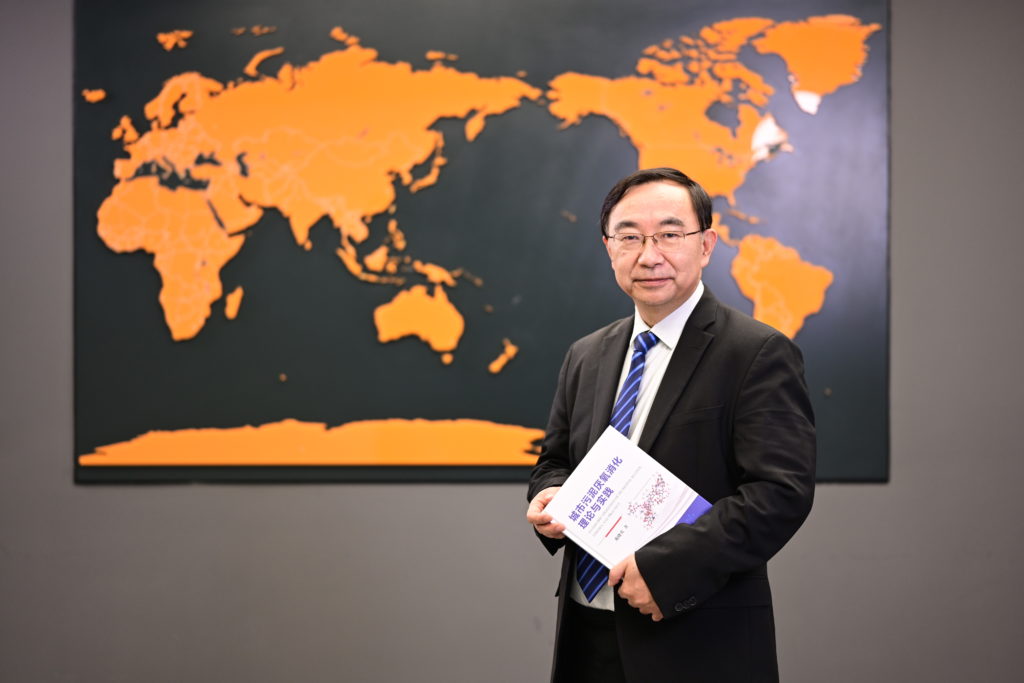
Institution/Organization: School of Environmental Science and Engineering, Tongji University
Email Address: daixiaohu@tongji.edu.cn
Website(s):
Keyword(s) of Area of Expertise:
- Pollution control
- waste treatment and resource recovery
- sludge treatment and disposal
Bio:
Position:
[1] Dean of College of Environmental Science and Engineering of Tongji University
[2] Director of National Engineering Research Center for Urban Pollution Control of China
[3] Consultative Committee Member of Engineering and Materials Division of The National Natural Science Foundation of China
[4] Vice director of the civil environment department, Science and Technology Commission of Ministry of Education of China
[5] Expert Committee Member of “Chinese National 863 plans” for Resource and Environment of China
[6] Expert Committee Member of Mega Water R&D Project “City Water Pollution Control” of China
[7] Responsible Expert for the Marked Achievements of Sludge Treatment and Disposal in Mega Water R&D Project “City Water Pollution Control” of China
[8] Convenor of expert group of the National Key Research and Development Plan “solid waste recycling” of China
[9] IWA (International Water Association) Fellow
Representative Publications:
[1] Xu Y, Zheng L, Geng H, et al. Enhancing acidogenic fermentation of waste activated sludge via isoelectric-point pretreatment: Insights from physical structure and interfacial thermodynamics[J]. Water Research, 2020.
[2] Wu B, Dai X, Chai X. Critical review on dewatering of sewage sludge: Influential mechanism, conditioning technologies and implications to sludge re-utilizations[J]. Water Research, 2020, 180:115912.
[3] Li, X., Chen, L., Mei, Q., Dong, B., Dai, X., Ding, G., & Zeng, E. Y. Microplastics in sewage sludge from the wastewater treatment plants in China. Water research, 2018, 142, 75-85.
[4] Wang, T., Zhang, D., Dai, L., Dong, B., & Dai, X. Magnetite Triggering Enhanced Direct Interspecies Electron Transfer: A Scavenger for the Blockage of Electron Transfer in Anaerobic Digestion of High-Solids Sewage Sludge[J]. Environmental science & technology, 2018, 52(12): 7160.
[5] Tang Y, Li X, Dong B, Huang J, Wei Y, Dai X, Dai L. Effect of aromatic repolymerization of humic acid-like fraction on digestate phytotoxicity reduction during high-solid anaerobic digestion for stabilization treatment of sewage sludge[J]. Water research, 2018, 143: 436-444.
[6] Boran, Wu, Bing-Jie, et al. Occurrence State and Molecular Structure Analysis of Extracellular Proteins with Implications on the Dewaterability of Waste-Activated Sludge[J]. Environ. Sci. Technol. 2017, 51(16):9235-9243.
[7] Dai X, Xu Y, Dong B. Effect of the micron-sized silica particles (MSSP) on biogas conversion of sewage sludge[J]. Water Research, 2017, 115: 220-228.
[8] Xu Y, Lu Y, Dai X, et al. The influence of organic-binding metals on the biogas conversion of sewage sludge[J]. Water research, 2017, 126: 329-341.
[9] Xue Y, Liu H, Chen S, Dai X, et al. Effects of thermal hydrolysis on organic matter solubilization and anaerobic digestion of high solid sludge[J]. Chemical Engineering Journal, 2015, 264: 174-180. (ESI)
[10] Dai X, Duan N, Dong B, et al. High-solids anaerobic co-digestion of sewage sludge and food waste in comparison with mono digestions: Stability and performance[J]. Waste Management, 2013, 33(2): 308-316. (ESI)